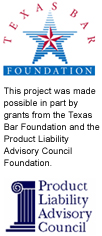
Tips for Reporting and Serving

Tips for Reporting and Serving
First day jitters? Relax and follow these tips.
Reporting for jury service is easy, and you'll be assisted by trained court personnel who can answer any questions.
- Arriving at the courthouse: Review the instructions
included with your summons. If the area is unfamiliar to you, you might
contact the
judge or district clerk's office or website for details. Bring your jury
summons with you.
- Dress the part: What you wear should show respect
for the court. You may serve on the first day you report, so leave shorts,
t-shirts with derogatory messages, cutoffs,
sleeveless shirts,
sandals and hats at home. Pack a light sweater or jacket, sometimes courtrooms
are chilly.
- Parking: Use any free parking offered to prospective jurors. Avoid
metered parking spaces, since you may be detained for longer than a couple
of hours.
- Security: You must pass through a metal detector
as you enter the court house. Remember, there are no weapons of any
kind allowed in the building.
- Bring money: Though the court or county may provide
parking or reimburse parking costs, you might have to pay initially.
And you
may need money for snacks during breaks, lunch, or pay phones.
- Bring a book: You may have downtime where a book or
other handwork would help pass the time. Cell phones and pagers must
be turned off. Internet
access, laptop
stations and reading materials may be provided for you, check with your
local courthouse.
A short orientation will fill in the blanks.
Typically, you'll receive a short orientation about jury service, either in the jury assembly room or courtroom. Pay close attention to this orientation, and the instructions given by court personnel and the judge.
Your presence is important to the jury system.
Your service has begun once you have arrived in the Jury Assembly room. The jury service system has been designed to guide you along, with clear instructions as you go. Even if you aren't ultimately selected, you are still providing an important part of the jury system.
See The Trial Process for information on the stages of a case.
